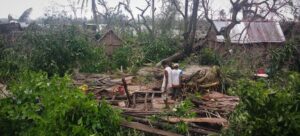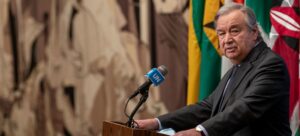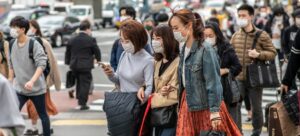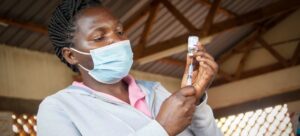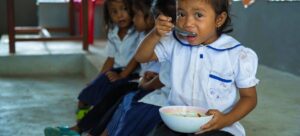How marketing of formula milk influences our decisions on infant feeding, the first report in a series by the World Health Organization (WHO) and the UN Children’s Fund (UNICEF), draws on interviews with parents, pregnant women, and health workers in eight countries.
More than half of those surveyed acknowledged that they had been targeted by formula milk companies.
Invasive marketing
UNICEF and WHO maintain that the $55 billion formula milk industry uses systematic and unethical marketing strategies to influence parents’ infant feeding decisions and exploitative practices that compromise child nutrition and violate international commitments.
“This report shows very clearly that formula milk marketing remains unacceptably pervasive, misleading and aggressive,” said WHO Director-General Tedros Adhanom Ghebreyesus, calling for regulations on exploitative marketing to be “urgently adopted and enforced to protect children’s health.”
The report found not only that industry marketing techniques include unregulated and invasive online targeting, but also sponsored advice networks and helplines; offered promotions and free gifts; and influenced health workers’ training and recommendations.
Barriers to breastfeeding
The report underlines that the industry often delivers misleading and scientifically unsubstantiated information to parents and health workers and also violates the International Code of Marketing of Breast-milk Substitutes – a landmark public health agreement to protect mothers from aggressive marketing by the baby food industry.
Having surveyed 8,500 parents and pregnant women, and 300 health workers globally, the report found that exposure to formula milk marketing reached 84 per cent of all women surveyed in the United Kingdom; 92 per cent in Viet Nam and 97 per cent in China – increasing their likelihood of choosing formula feeding.
“False and misleading messages about formula feeding are a substantial barrier to breastfeeding, which we know is best for babies and mothers,” said UNICEF Executive Director Catherine Russell.
Misleading messages
Across all countries surveyed, women expressed a strong desire to breastfeed exclusively that ranged from 49 per cent in Morocco to 98 per cent in Bangladesh.
Yet the WHO/UNICEF report details how a sustained flow of misleading marketing messages is reinforcing myths about breastfeeding and breast-milk, and undermining women’s confidence in their ability to breastfeed successfully.
Ms. Russell called for “robust policies, legislation and investments in breastfeeding” to protect women from unethical marketing practices and give them access “to the information and support they need to raise their families.”
Myth busting
Some of the myths around breastfeeding include the inadequacy of breastmilk for infant nutrition; that infant formula improves development or immunity; and that the quality of breast-milk declines with time.
According to the data, breastfeeding within the first hour of birth, followed by exclusive breastfeeding for six months and continued breastfeeding for up to two years or beyond, offers a powerful line of defense against all forms of child malnutrition.
Breastfeeding also acts as babies’ first vaccine, protecting infants against many common childhood illnesses while also reducing future risks of diabetes, obesity, and some forms of cancer in nursing mothers.
According to WHO, breastfeeding is the best way of providing infants with the nutrients they need for healthy growth and development and can prevent 13 per cent of child deaths.
Formula milk sales double in 20 years
Despite these benefits, around the world only 44 per cent of babies less than six months old are exclusively breastfed.
While global breastfeeding rates have increased very little over the past two decades, formula milk sales have more than doubled in roughly the same time.
And alarmingly, the report notes that the baby feeding industry has approached health workers across all countries with promotional gifts, research funding and even sales commissions to influence new mothers on their feeding choices.
More than one third of women surveyed said that a health worker had recommended a specific brand of formula to them.
Addressing the challenges
Following the report launch, WHO, UNICEF and partners called on Governments, health workers, and the baby food industry to end exploitative marketing on formula milk.
They also appealed for the Code’s requirements to be fully implemented, including by passing, monitoring and enforcing laws to prevent formula milk promotion; investing in supportive breastfeeding policies and programmes, such as adequate paid parental leave; and banning health workers from accepting sponsorship from companies that market foods for infants and young children for scholarships, awards, grants, meetings, or events.
Formula milk and tobacco are the only two products for which international recommendations to prohibit marketing exist.
In this case, through the International Code of Marketing of Breast-milk Substitutes.





